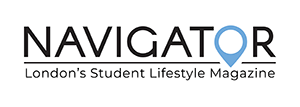Finding the perfect internship

Finding an internship is sometimes the scariest thing about college or university. To start a successful career, you will want to practice the skills that you learned in school and get a job with opportunities for career growth. You might ask yourself: What jobs can I work? How do I prepare myself for a job search? Where do I find jobs? To answer those questions, here are five tips to help you get that internship at a place that you’ll love to work, using information from Fanshawe’s Career Services Workshops.
1. Give yourself a lot of time
Job searching is a long and arduous process. It’s difficult to stumble across a good position immediately. So give yourself around four to five months of time from the moment you start job searching to get a full-time position.
2. Understand what you have to offer and what you are looking for
It’s wise to keep track of your previous jobs, certifications, skills, hobbies, and volunteer experiences. Interviewers will ask how you handle certain scenarios on the job and you can prepare by researching the work you would be doing in the position. That way you can use your past experiences to relate to similar experiences you can expect in that position and answer those types of interview questions more effectively. Soft skills and work are important to employers, no matter the industry, especially as an entry level position. Additionally, what would you like from your job? A good pay? Good work culture? It is important to rank what you value most, because it will help you focus your attention on what you value.
3. Prepare all your self-marketing materials before you apply for jobs
The best thing you can do for yourself before putting your resume out on the job market is preparing how you’re going to market yourself. Depending on the type of work you do, you might want to clean up your socials and update your personal website. Search yourself on Google to see what your employer sees when they research you. Prepare master versions of your resume and cover letter to speed up the process of applying for jobs. Format and style your resume and cover letter the same way so employers will know which application papers are yours. This helps to makes your materials recognizable. Make a list of references and remember to let them know that you are job searching so they know to expect a call.
4. Record your job search activities and make a list of connections
A good tool to record your job search is making a job lead sheet. You can add a few columns to the sheet like: Job Applied, Date Applied, Ranked Preference. That way you remember what you applied for and which jobs you prefer. Then you should make a list of connections. Label contacts as either warm contacts or cold contacts. Warm contacts are people you already know and have some rapport with. Cold contacts are people you may have met recently or through research and haven’t developed much rapport with yet. 85 per cent of jobs are found through networking so don’t skip this step.
5. Start contacting people and applying!
At this point, you can start contacting people and applying to positions. Always remember to apply to a job exactly the way the employer requests on a job posting. It shows an employer that you can listen to instructions and can boost your chances. However, some employers may have specific requirements, like wanting a resume to be formatted in a particular way, or asking that you have specific qualifications. In a lot of cases, you won’t have exactly the skills the employer requests so the goal is to demonstrate that you are as close as possible to what they want. Additionally, public job boards like Indeed may provide some opportunities but you should be careful when not applying directly to a company website or in person. Fraudulent jobs can be posted on job boards and many advertisements for jobs are left there even after companies have filled those positions. It can be difficult to rely on job boards and it’s good to limit your time with them to about 20 per cent of your actual job search.
If you need a second opinion you can always contact Career Services at Fanshawe or Western and meet with a consultant to help with your job search. They can always help you tweak parts of your resume and refine your job search process. Hopefully these tips can make your search for an internship a little less scary.

